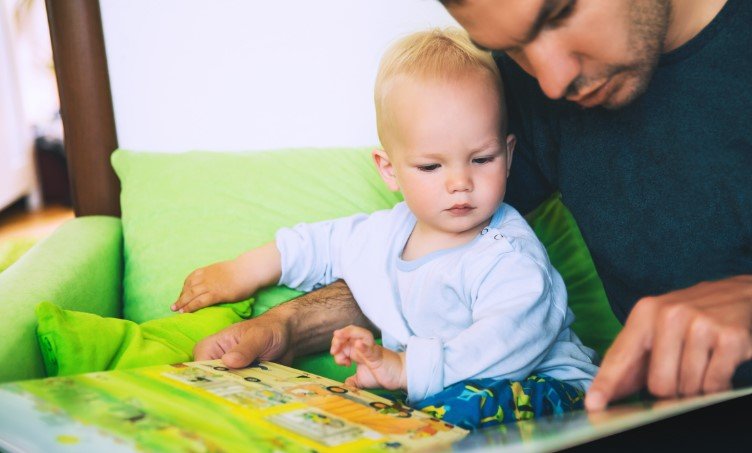Parenting toddlers can be both exciting and challenging. At this stage, children are developing rapidly, learning new skills, and exploring the world around them. As a parent, it’s important to have effective strategies in place to guide your toddler’s behavior, foster a positive relationship, and promote their emotional and social development. In this article, we’ll explore some practical and effective parenting strategies for toddlers to help you navigate this wonderful but often tricky stage of life.

Establish Clear and Consistent Rules
Toddlers thrive in environments where there are clear and consistent rules. At this age, children are learning the difference between right and wrong, so it’s important to set simple, age-appropriate rules and enforce them consistently. For example, you might say, “We use gentle hands,” when your toddler hits or pushes, or “Toys go in the toy box,” when they leave toys scattered around. Consistency helps toddlers understand expectations and feel secure.
It’s also important to make sure everyone in the household follows the same rules. If one parent allows certain behaviors while the other doesn’t, it can confuse the toddler and lead to frustration. Consistency in discipline helps toddlers develop self-control and understand boundaries.
Use Positive Reinforcement
Positive reinforcement is a powerful tool for encouraging good behavior in toddlers. When your child behaves well or completes a task, offer praise or rewards to reinforce that behavior. For example, if your toddler shares toys with others, you can say, “Great job sharing! That makes your friend happy.” Positive reinforcement encourages your toddler to repeat desirable behaviors and boosts their self-esteem.
However, make sure your praise is specific and genuine. Instead of just saying, “Good job,” be more specific: “I love how you cleaned up your toys!” This helps your toddler understand exactly what behavior you’re praising and motivates them to do it again.
Be Patient and Calm
Toddlers are still learning how to manage their emotions, so tantrums, outbursts, and frustration are common at this stage. It’s important to remain patient and calm when your toddler acts out. Reacting with anger or frustration can escalate the situation and may make your toddler feel scared or confused. Instead, take a deep breath, stay composed, and respond to your toddler’s needs with understanding.
If your toddler is upset, acknowledge their feelings: “I can see you’re really angry because we have to leave the park. It’s okay to feel mad.” This helps your child feel heard and teaches them that it’s okay to have emotions, but they also need to learn how to express them appropriately.
Set a Routine
Toddlers thrive on routine. Establishing a daily schedule helps your child feel secure and understand what to expect throughout the day. Regular meal times, nap times, and bedtime routines create a sense of predictability, which can reduce anxiety and behavioral problems. For example, if your toddler knows that it’s time to clean up after lunch and then have a nap, they will be more likely to cooperate because they understand the sequence of events.
Having a routine also helps toddlers develop good habits. For instance, if you consistently read a book before bed, it will become a comforting ritual that signals to your toddler that it’s time to wind down and go to sleep.
Encourage Independence
While toddlers are still dependent on their parents for many things, it’s important to encourage their growing independence. Allowing your toddler to make choices, even if they are small, helps build their confidence and decision-making skills. For example, let your toddler choose between two outfits or decide which fruit to have for a snack.
Offering choices helps toddlers feel more in control of their environment and fosters a sense of autonomy. However, it’s important to make sure the choices are limited and manageable so that your toddler doesn’t feel overwhelmed. For example, give them two or three snack options rather than an open-ended selection.
Use Time-Outs as a Calm-Down Strategy
Time-outs can be an effective strategy for helping toddlers calm down and reflect on their behavior, but they should be used appropriately. When your toddler is acting out or breaking a rule, you can calmly say, “It’s time to take a break for a few minutes,” and guide them to a quiet space where they can sit and relax.
The goal of a time-out is not punishment but rather to give your toddler time to cool down and reset their emotions. After a few minutes, talk to your child about what happened and why the behavior was not acceptable. This helps them learn self-regulation and the importance of taking a break when they feel overwhelmed.
Be a Positive Role Model
Toddlers learn a lot by watching the adults around them. As a parent, it’s important to model the behavior you want to see in your child. If you want your toddler to be polite, show them kindness and use polite language like “please” and “thank you.” If you want your toddler to manage frustration better, demonstrate how to handle your own emotions calmly.
Children imitate what they see, so being a positive role model is one of the most effective parenting strategies. When your toddler sees you handle challenges with patience and respect, they will be more likely to adopt those same behaviors.
Provide Plenty of Opportunities for Play
Play is essential for a toddler’s development. It helps them learn new skills, build relationships, and express their creativity. Make time for both structured play, such as reading a book or doing a puzzle together, and unstructured play, like allowing your toddler to explore their environment freely. Playtime not only strengthens your bond with your child but also supports their cognitive, emotional, and physical development.
Interactive play, such as playing pretend games or building with blocks, encourages problem-solving and creativity. Additionally, outdoor play helps toddlers develop their motor skills, coordination, and social skills by interacting with peers.
Stay Flexible and Adapt
While consistency is important, it’s also essential to remain flexible and adapt as your toddler grows and their needs change. What works for your child at one stage may not be effective as they develop new abilities and emotions. Stay open to adjusting your parenting strategies based on your toddler’s changing needs and behaviors.
It’s okay to make mistakes and learn along the way. Parenting is a journey, and being adaptable helps you create a positive and supportive environment for your toddler’s growth.
Conclusion
Parenting toddlers requires patience, flexibility, and a variety of strategies to ensure healthy emotional and social development. By establishing clear rules, offering positive reinforcement, staying calm during difficult moments, and encouraging independence, you can help your toddler grow into a confident, responsible, and well-adjusted individual. Remember that every child is different, so it’s important to adapt these strategies to fit your toddler’s unique personality and needs.




